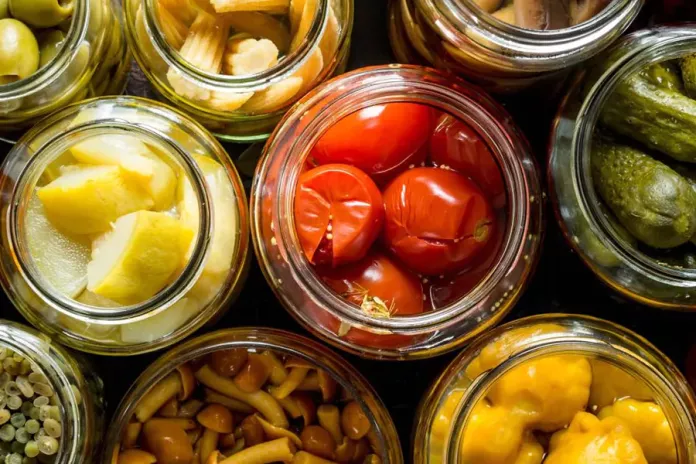Salting and Fermenting Vegetables for the Winter
Salting and fermenting are one of the main ways to preserve cucumbers, tomatoes, cabbage and many other vegetables for the winter. In relation to vegetables, salting and fermenting is, in fact, one process. You can often hear that some people call cucumbers preserved for the winter - salted cucumbers, and others - fermented cucumbers. But this is the same way to preserve vegetables for the winter, based on the processes of vegetable fermentation, with the presence of the required amount of salt. Salt is always added when salting or fermenting vegetables. Salt weakens the development of foreign bacteria and helps the reproduction of lactic acid bacteria, which speeds up the fermentation process.
Lactic Acid Fermentation
All vegetables contain sugar, which, when salted or fermented, is converted into lactic acid by the action of lactic acid bacteria. Accumulating, lactic acid prevents the appearance of putrefactive bacteria, which protects vegetables from spoilage. Based on this, we can say that lactic acid is a preservative for vegetables when they are salted or fermented. https://kashevar.com/en/recipes/preparations For better fermentation or salting, it is necessary that lactic acid bacteria get on vegetables. Such bacteria are in the air and therefore, when preparing vegetables, they inevitably fall into a container for fermentation. If these bacteria are not enough and the fermentation process has slowed down, artificial cultures containing lactic acid can be added.
Vegetables for Fermenting for the Winter
In order for the fermentation process to proceed safely, it is necessary that the fermented vegetables be sugary. The lower the sugar content, the less stable the fermented vegetables will be during storage. For example, for salting or fermenting, it is necessary to take young cucumbers, since they have 1.5 times more sugar content than yellowed ones. But it is better to ferment well-ripened cabbage - medium-late or late varieties.
Conditions for the Correct Process of Salting and Fermentation
In addition to having enough bacteria for the fermentation process, it is necessary to maintain a favorable temperature for this process - from 15 to 22°C. If the temperature is too low, the fermentation process may be delayed. And vice versa, if the temperature is higher than it should be, then, in addition to lactic acid bacteria, a number of others will multiply, which will not be very good for the smell, taste and quality of the product. In order for the process of fermentation and salting to proceed safely, it is necessary to properly prepare the container. If you salt or ferment in barrels, they must be washed well with alkali, and then fumigated with sulfur. If you salt in glass jars, they must be washed well, and then sterilized.
